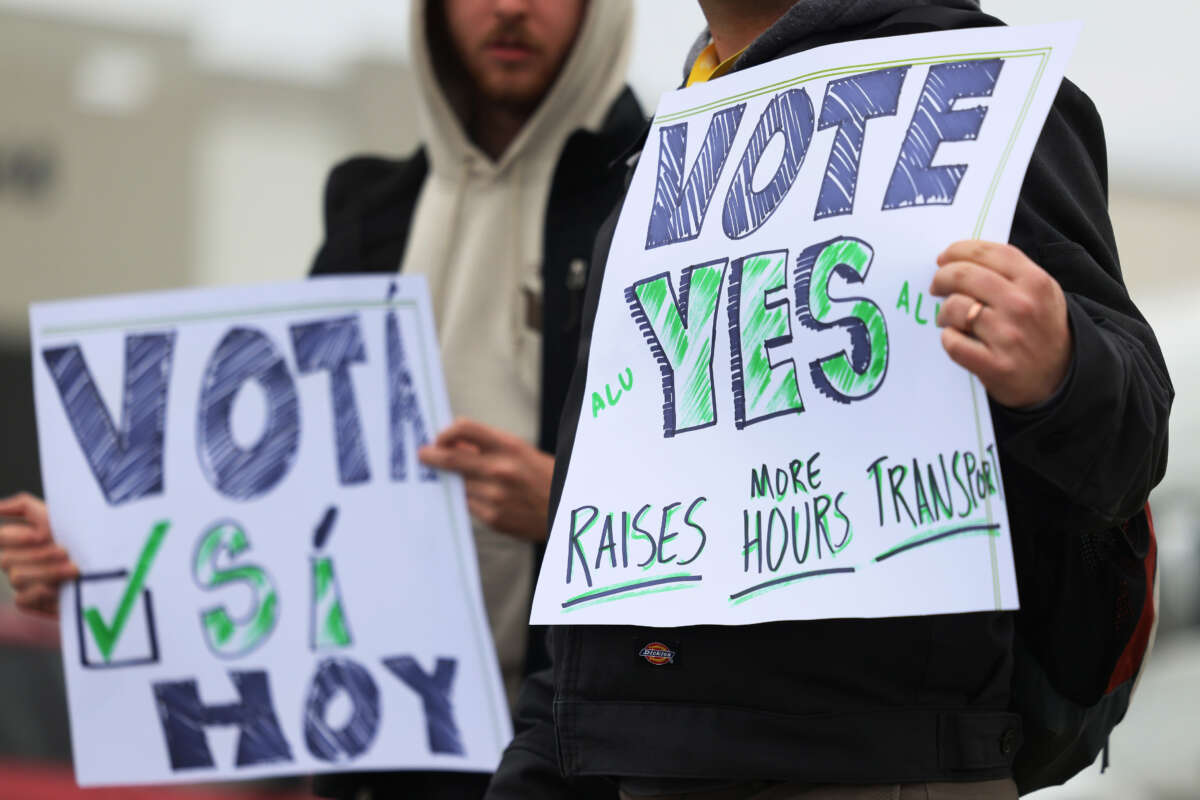Support justice-driven, accurate and transparent news — make a quick donation to Truthout today!
Employers are being charged with breaking the law in a huge portion of union elections, a new analysis shows, as union membership hits a record low across the U.S.
According to the Economic Policy Institute (EPI), employers were charged with breaking the law in 39 percent of union elections filed with the National Labor Relations Board (NLRB) between 2019 and 2022.
These charges cover a variety of illegal union-busting tactics. In roughly one in four elections, employers were charged with disciplining and firing workers or changing work terms. Employers were charged with threatening, coercing or retaliating against workers in a union drive and refusing to bargain with workers at roughly the same rate.
Employers were most likely to be charged with illegal conduct in union elections involving a larger bargaining unit; in elections with a unit of more than 50 employees, employers were charged with breaking the law nearly 50 percent of the time, EPI found.
This rate of alleged illegal union busting roughly lines up with analyses of previous years; EPI previously found that employers were charged with breaking the law in over 40 percent of the over 3,200 union elections conducted between 2016 and 2017.
While the data showcases how union-busting employers often disregard labor laws in union drives, it is not comprehensive in displaying the full width of illegal anti-union actions, the authors note.
“The data doesn’t show the extent of employer aggression because missing from the numbers are attempts by management to suppress unionization before workers even get a chance to hold an election,” the authors wrote.
Unionization rates in the U.S. have in fact hit a record low. In 2022, the proportion of workers belonging to a union fell to a mere 10.1 percent, the lowest rate on record, Bureau of Labor Statistics data shows — despite the fact that the labor movement is surging and public approval of unions has hit an over 50-year high.
“Labor law in the U.S. fails to prevent private-sector employers from engaging in aggressive tactics that coerce and intimidate workers and prevent them from unionizing,” they added.
Labor advocates have long said that the reason that employers break labor law so often in union drives is because of lax labor regulations. Employers exploit the weakness of labor laws at every step of the unionization process, utilizing both legal and illegal tactics — including promising better benefits when workers hint at unionizing, firing workers for speaking out for the union and even entirely shuttering unionizing departments and locations where workers are organizing.
Though the NLRB, under the counsel of Jennifer Abruzzo, has tried to implement some remedies for workers to discourage companies from illegal union busting, the agency can only go so far pursuant to its jurisdiction under the National Labor Relations Act. This leaves a labor code that blatantly favors employers, labor advocates say, with extremely small penalties for illegal anti-labor conduct and little incentive for employers to not break the law.
Progressive lawmakers have rallied behind the Protecting the Right to Organize (PRO) Act, a bill that would likely turn the current labor climate on its head by implementing a wide range of reforms in favor of workers and their right to form a union. But with conservative opposition to the bill — as well as a strong right-wing, business-funded lobby against it — there is little chance of the bill passing any time soon.
Media that fights fascism
Truthout is funded almost entirely by readers — that’s why we can speak truth to power and cut against the mainstream narrative. But independent journalists at Truthout face mounting political repression under Trump.
We rely on your support to survive McCarthyist censorship. Please make a tax-deductible one-time or monthly donation.
